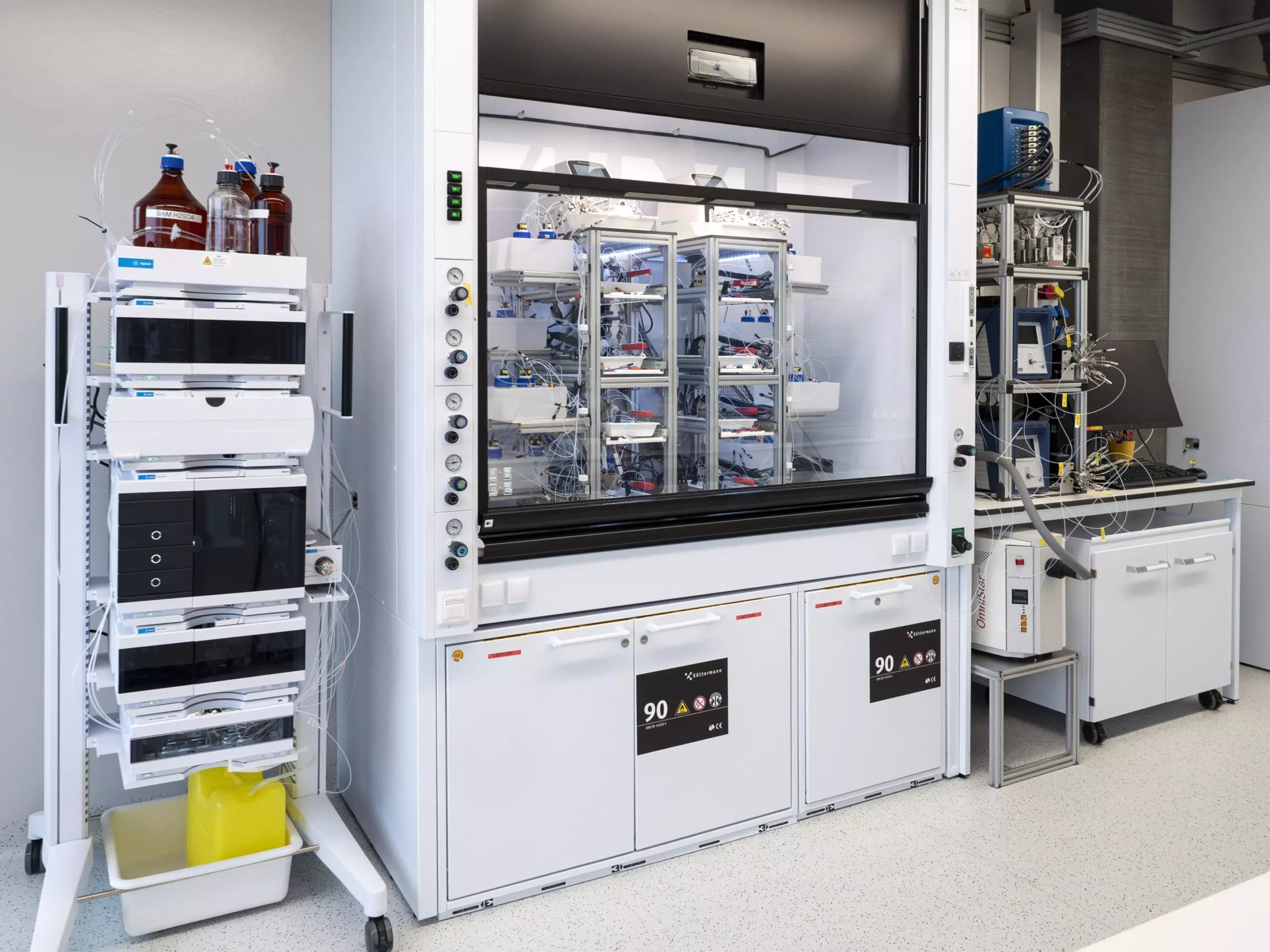Synthetic fuels, also known as synfuels, have the potential to revolutionize the way we produce and utilize energy. By converting CO2 back into fuel using renewable energy sources, we can reduce our carbon footprint and create a more sustainable energy system. However, the process of producing synfuels comes with its own set of challenges, including the difficulty of separating the different products formed during the reaction. Researchers at Empa and the Paul Scherrer Institute (PSI) have been working on ways to overcome these challenges and make synthetic fuel production more efficient and economically viable.
The Joint Initiative SynFuels project aimed to develop a system that could investigate multiple reaction conditions, catalysts, and electrode materials simultaneously. This system consists of 10 reactors, each connected to various instruments and outlets, allowing for the recording of multiple parameters with high temporal resolution. By accelerating the experimentation process, researchers were able to generate a large amount of high-quality data, which will help them make accelerated discoveries in the field of CO2 electrolysis.
Advanced Technology
During the development of the system, researchers collaborated with Agilent Technologies to create the world’s first online liquid chromatography device. This device can identify and quantify liquid reaction products in real-time, providing valuable insights into the CO2 electrolysis process. In order to analyze the vast amount of data generated by the system, researchers also developed a software solution that is available on an open-source basis to scientists at other institutions. This commitment to sharing data and knowledge will help accelerate research in the field of synthetic fuels.
The Importance of Data Sharing
In the past, research data has often been isolated and underutilized, hindering progress in scientific research. The researchers involved in the PREMISE project are working to change this by creating standardized methods for storing and sharing data. By making research data openly accessible, other researchers can benefit from insights gained from the data, promoting collaboration and innovation in the field.
The new parallel CO2 electrolysis system developed by Empa and PSI is expected to play a crucial role in the second phase of the NCCR Catalysis project, which focuses on sustainable chemistry. By continuing to refine the hardware and software of the system, researchers will be able to generate even more valuable data and insights that can be shared with other Swiss research institutions. This collaborative approach to research will help advance the field of synthetic fuels and contribute to a more sustainable energy future.
The development of advanced technology for synthetic fuel production represents a significant step forward in our quest for a more sustainable energy system. By accelerating the research process and sharing data and knowledge with other researchers, we can unlock new possibilities in the field of CO2 electrolysis. The future of synthetic fuels looks promising, thanks to the dedication and innovation of researchers working to make this technology a reality.


Leave a Reply